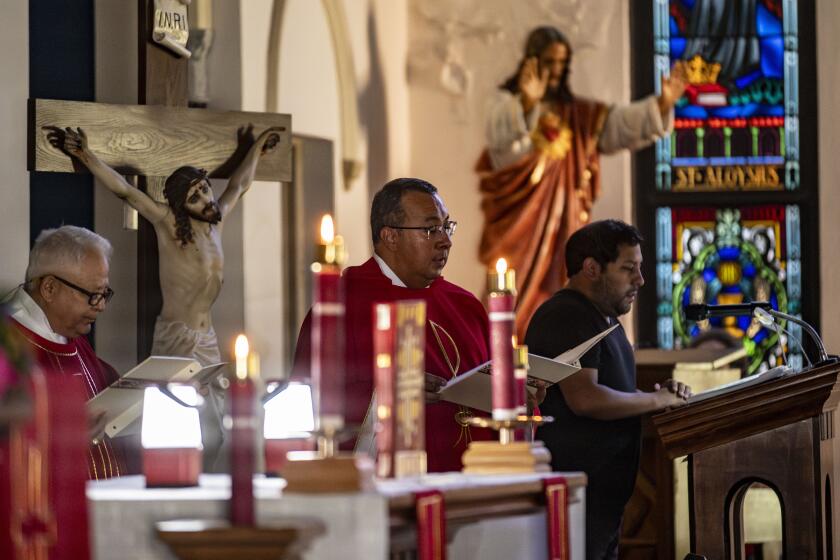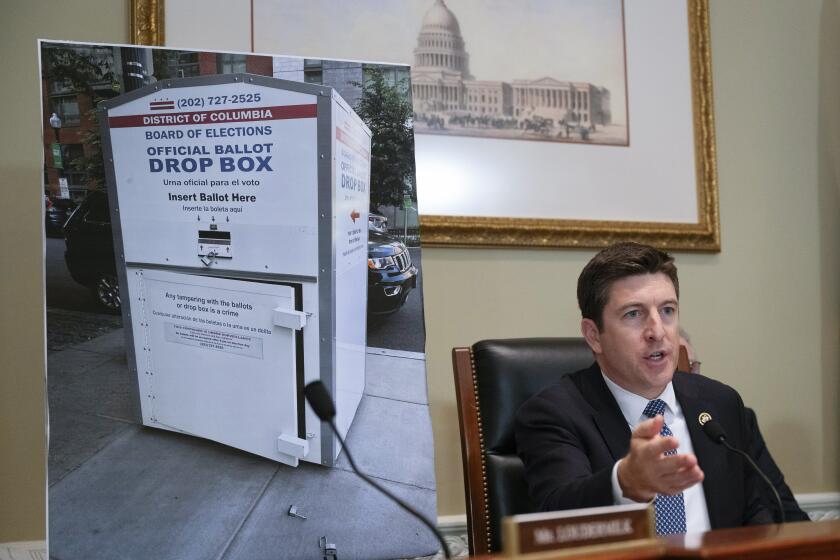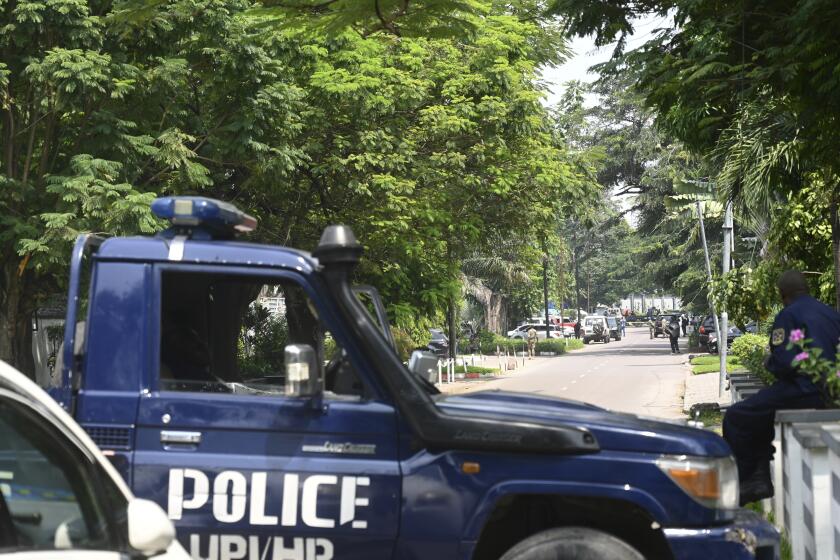The Press Just Has to Take It Sitting Down
There’s not a bad seat in Judge Lance A. Ito’s little theater of criminal justice. But when the judge shifted reporters’ seating around Friday, you’d think some of them had been consigned to the last row of the Forum.
It was the first time the judge had rearranged press seating since the O.J. Simpson murder trial began three months ago. Some journalists moved forward, and others toward the rear of a courtroom that has only four rows.
Outrage exploded before court began Friday morning when reporters lined up in a dingy Criminal Courts Building hallway for their passes. One journalist after another protested the arrangements to Jerrianne Hayslett, Judge Ito’s press aide. “Outrageous!” “A slap in the face!” Those were among the milder comments.
I was there as an objective reporter. I don’t have a place in the courtroom so I don’t care where anyone sits. I just wanted to see the denouement of an episode that I had watched from its early stages around a table in a traditional journalistic watering hole, the Redwood, a saloon on 2nd Street in Downtown.
*
I had stopped by the Redwood for a drink one night early last month when I saw several reporters seated in a booth toward the front of the bar. I joined them, thinking I might hear some good gossip. But instead, it was a meeting of Civic Center reporters who were angry over several aspects of the Simpson trial, including the seats assigned to the local press.
The anger had been brewing since the trial began and Judge Ito had relegated The Times and the Daily News of Los Angeles to back rows while putting book authors Dominick Dunne and Joe McGinnis in the front row. The legal newspaper, the Daily Journal, didn’t even get a full-time seat. Nor did La Opinion, which serves the Spanish-speaking community.
I didn’t want to hear about seating, so I left. Subsequently, the group wrote a letter to Gary Klausner, the presiding judge of the Superior Court, declaring that the local press is “forced to compete for courtroom seats with hundreds of out-of-town journalists, celebrity authors and other late arrivals.”
Shortly after the Redwood meeting, Judge Ito stepped back into the controversy.
Hayslett, the court press officer, said that it wasn’t the Redwood letter that attracted Ito’s attention, but vacant seats in his courtroom, particularly in the afternoons.
Ito told Hayslett to begin recording attendance. With vacancies continuing, Hayslett said, she put out an advisory to the press April 14 warning that “courtroom media seating assignments will be revised in the near future based on the occupancy rate.”
This week, Hayslett said, Ito told her to post the new seating arrangement, which she did late Wednesday afternoon.
The daily press was furious. Book authors Dunne and McGinnis retained their front row seats. Worse yet, in the minds of the daily reporters, two other book authors, Joe Bosco and Jeffrey Toobin, were moved up to the first row.
This was annoying since neither man was around Friday, both having gone home to visit their families, Toobin to New York and Bosco to New Orleans, and their seat was being occupied by a representative of the National Enquirer.
The Bosco move was especially rankling to the reporters, since he has written about his press corps pals for Penthouse in an article some of the reporters consider a stab in the back.
Even worse, Ito had displaced City News Service and its popular reporter, Shoreen Maghame, to make room for the Bosco-Toobin combine. And the reporters turned up what they said were serious errors in the court’s attendance report.
By day’s end Friday, Ito had modified his stern decree. He moved CNS’s Maghame back to Row 1. Toobin and Bosco are in the second row.
But he sent a message through press aide Hayslett that he was sick of the press complaints. “You’re there, you get a good seat,” he said. “You’re not there, you don’t. I don’t think you can get any fairer than that.”
If the press doesn’t like the arrangements, he said, he’ll switch to a first-come, first-served basis. Or a lottery, with the press competing for seats with the public.
*
From this account, you can see it’s not easy to get along with the press.
We can’t help this behavior. It’s part of the compulsiveness that makes for a good reporter. We go crazy at anything we think interferes with getting the story out.
That’s why the worst job on a presidential campaign is being in charge of media accommodations. Reporters lose their tempers when a phone jack doesn’t work, or their hotel room isn’t ready the moment the campaign party checks in.
No sensible person wants to handle press arrangements, judge. Let someone else do the job. It’s a quagmire.
More to Read
Start your day right
Sign up for Essential California for news, features and recommendations from the L.A. Times and beyond in your inbox six days a week.
You may occasionally receive promotional content from the Los Angeles Times.






